About the School
Web site: http://physics.karazin.ua/
About the School
The School of Physics has a glorious history comprising 200 years of fruitful work in education, science, and culture. When on January 17, 1805 Kharkiv Imperial University was opened, one of its departments of the Division of Physical and Mathematical Sciences was the Department of Theoretical and Experimental Physics. A. Stoikovych, a Serbian by origin, was the first to head this Department. He was a brilliant lecturer. One of his students was V. Komlyshynskyi who would later head the School of Physics in 1813. He was the first to defend his PhD thesis in physics at the University, and to engage in educational and enlightening activities for about 35 years. In 1808 Kharkiv University opened the Cabinet of Astronomy, in 1824 — the Department of Astronomy. In 1983 Professor G. Levitsky founded the Astronomy Observatory.
The School of Physics founded world-known scientific schools that are still successfully developing:- Theoretical Physics,
- Solid State Physics,
- Low Temperature Physics,
- Magnetism,
- Real Crystal Physics,
- Physical Optics,
- Solar System Physics.
For example, the founders of the scientific school of theoretical physics at Kharkiv University were prominent scientists, namely Lev Landau, a laureate of the Nobel and Lenin Prizes, and Ilya Lifshits, a laureate of Lenin Prize.
Today, there are nine Departments providing students’ training:
- Department of Experimental Physics,
- Department of Higher Mathematics,
- Department of General Physics,
- Academician I. Lifshitz Department of Theoretical Physics,
- Department of Low Temperature Physics,
- Department of Solid State Physics,
- Department of Crystal Physics,
- Department of Physical Optics,
- Department of Astronomy and Space Informatics.
The Departments have branches at the institutes of the National Academy of Sciences of Kharkiv. Our partners are B. I. Verkin Institute for Low Temperature Physics and Engineering, the National Research Center Kharkiv Institute of Physics and Technology, the Institute of Electrophysics, the Science and Engineering Complex Institute of Monocrystals, V. Ya. Usykov Institute of Radiophysics and Electronics, and the Institute for Radioastronomy. Close cooperation with the Institute of the Scintillation Materials of the National Academy of Sciences of Ukraine resulted in the opening of the specialization “Physics of Nanocrystals and Nanostructures” on the basis of the scientific school of real crystal physics (Department of Crystal Physics), the creation of the Scientific and Educational Center Functional Materials whose scientists won the tender for realization of the Project “Development of New Composite Media to Record Ionizing Emission Using Nanodisperse Materials”.
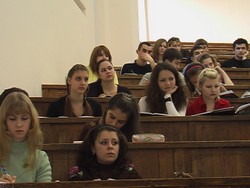 The School also has research and methodological laboratories, a unique helium liquefaction station, and machine workshops.
The School also has research and methodological laboratories, a unique helium liquefaction station, and machine workshops.
Today’s School has a powerful potential: students’ professional training is ensured by faculty members from its nine departments. Among them there are two full members and two corresponding members of the National Academy of Sciences of Ukraine, a corresponding member of the Transport Academy of Sciences of Ukraine, laureates of the State Prize of Ukraine in Science and Engineering, Merited Workers of Education of Ukraine, more than 30 doctors of sciences, full professors, and more than 40 PhDs, associate professors.
The School of Physics trains specialists in Bachelor’s degree programs (majors: Physics, Astronomy) with the term of training being four years, and in Master’s degree programs (specialities: Physics, Condensed State Physics, Astronomy) with the term of training being one year. Our graduates obtain the qualification of researcher (physics and astronomy), that of lecturer/instructor of a university and higher educational institutions. Students of the School of Physics can choose to obtain an additional qualification of teacher of physics and mathematics. Graduates of the School of Physics fruitfully work in contemporary areas of physics, including physics of biomaterials and medical material science, astrophysics and astronomy, in the fields of financial mathematics, computer simulation, and IT-technologies.
Research development contributed to the opening of new specialities and specializations:
- Physics speciality, specializations: physics of magnetic phenomena, magnetism of nanodimensional systems, optics and spectroscopy, nonlinear optics of nanodimensional structures, photonics and optoinformatics, physics of crystals and functional materials, physics of nanocrystals and nanosystems, low temperature physics, superconductivity physics, theoretical physics;
- Condensed-State Physics speciality, specializations: physical material science and computer metallography, physics of biomaterials and medical material science;
- Astronomy speciality, specializations: astrophysics, Solar System physics, and space informatics.
The Department of Higher Mathematics is planning to open the speciality in computer simulation of physical processes.
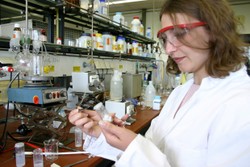 Students of the Department of Physics undergo scientific internships at the Center for Nanointegration and Biomaterials (CeNIDE) at the University of Duisburg—Essen (Germany) and at Pavol Jozef Šafárik University in Košice (Slovakia). This enables them to get acquainted with the organization of training, content of the related academic courses and principles of knowledge contraol adopted at these institutions, to evaluate the efficiency of presenting the academic materials through contemporary forms of self-study and using electronic technologies. Students share the experience gained at the School’s seminars and workshops. All this encourages students’ involvement and enhances their role in shaping the content of education. As a rule, students take active part in regional, all-Ukrainian and international science conferences where they make reports on the results of their own research.
Students of the Department of Physics undergo scientific internships at the Center for Nanointegration and Biomaterials (CeNIDE) at the University of Duisburg—Essen (Germany) and at Pavol Jozef Šafárik University in Košice (Slovakia). This enables them to get acquainted with the organization of training, content of the related academic courses and principles of knowledge contraol adopted at these institutions, to evaluate the efficiency of presenting the academic materials through contemporary forms of self-study and using electronic technologies. Students share the experience gained at the School’s seminars and workshops. All this encourages students’ involvement and enhances their role in shaping the content of education. As a rule, students take active part in regional, all-Ukrainian and international science conferences where they make reports on the results of their own research.
During their studies students of the School of Physics not only receive ordinary scholarships and exhibitions, but also have an opportunity to apply for the President’s Scholarship, scholarships of different charitable foundations, in particular those of U. Sapronov and I. Tarapov Foundations, as well as named scholarships, such as I. M. Lifshitz Scholarship, M. P. Barabashov Scholarship. Within the framework of cooperation with the Universities in Duisburg-Essen and Bochum (Germany) our students receive Leonard Euler Scholarships (German Academic Exchange Service (DAAD)). The high quality of students’ training at the School of Physics is reflected in their victories at prestigious contests in physics, astronomy, astrophysics, and theoretical mechanics, in successful performances at contests of students’ scientific works, and the student tournament of physicists. In 2013the SciVerse Scopus scientometric database published the ranking of young scientists of Ukraine where the graduates of the School of Physics are among the TOP-50.
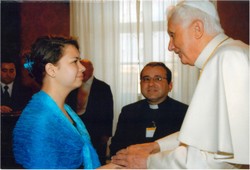 The School has close ties with a number of scientific and educational institutions offering employment for our alumni. Our foreign partners, among others, are the School of Physics of the Belorussian State University (Minsk), the Belorussian State University of Transport, the College of Physical Sciences of the University of Exeter (England), the School of Physics of the University of New Brunswick (Sackville, Canada), McGill University (Canada), J. W. Goethe Institute of Physics (Frankfurt, Germany), Friedrich Schiller Institute of Solid-State Physics (Jena, Germany), Duisburg-Essen Universities, Bochum and Münster Universities (Germany), the Institute of Metals in Düsseldorf (Germany), Leibniz Institute (Rostock, Germany), the Institute of Physics of Pavol Jozef Šafárik University (Cošice, Slovakia), the High Pressure Research Center of the Polish Academy of Sciences, the Institute of Low Temperature and Structure Research of the Polish Academy of Sciences (Wroclaw), the University of Science and Technology (Krakow, Poland), Bar-Ilan University (Israel), the University of Ariel (Ariel, Israel), the Higher School of France École Polytechnique (Paris), Astrophysics Instrumentation Research Laboratory (Meudon, France) and others. An illustrative example is the fact that our graduate students work on the Large Hadron Collider at the European Nuclear Research Center, and in Los-Alamos National Laboratory of the Ministry of Power Energy of the United States of America.
The School has close ties with a number of scientific and educational institutions offering employment for our alumni. Our foreign partners, among others, are the School of Physics of the Belorussian State University (Minsk), the Belorussian State University of Transport, the College of Physical Sciences of the University of Exeter (England), the School of Physics of the University of New Brunswick (Sackville, Canada), McGill University (Canada), J. W. Goethe Institute of Physics (Frankfurt, Germany), Friedrich Schiller Institute of Solid-State Physics (Jena, Germany), Duisburg-Essen Universities, Bochum and Münster Universities (Germany), the Institute of Metals in Düsseldorf (Germany), Leibniz Institute (Rostock, Germany), the Institute of Physics of Pavol Jozef Šafárik University (Cošice, Slovakia), the High Pressure Research Center of the Polish Academy of Sciences, the Institute of Low Temperature and Structure Research of the Polish Academy of Sciences (Wroclaw), the University of Science and Technology (Krakow, Poland), Bar-Ilan University (Israel), the University of Ariel (Ariel, Israel), the Higher School of France École Polytechnique (Paris), Astrophysics Instrumentation Research Laboratory (Meudon, France) and others. An illustrative example is the fact that our graduate students work on the Large Hadron Collider at the European Nuclear Research Center, and in Los-Alamos National Laboratory of the Ministry of Power Energy of the United States of America.
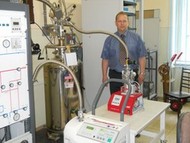 Professor Ruslan Vovk, Dean of the School of Physics, is a coordinator from Kharkiv region in the Seventh International Research Staff Exchange Scheme (IRSES) within the NoWaPhen Project titled Novel Wave Phenomena in Magnetic Nanostructures funded by the European Community grant agreement No. PIRSES-GA-2009-247556.
Professor Ruslan Vovk, Dean of the School of Physics, is a coordinator from Kharkiv region in the Seventh International Research Staff Exchange Scheme (IRSES) within the NoWaPhen Project titled Novel Wave Phenomena in Magnetic Nanostructures funded by the European Community grant agreement No. PIRSES-GA-2009-247556.
Recently, grants have been won to conduct research and cooperate with the National Centre of Scientific Research “DEMOKRITOS” (Athens Greece), Brighton University, the University of Exeter (Great Britain), Friedrich Schiller University (Jena, Germany). Another grant is 823G/22-13 Armory Research Laboratory (USA).
The School has the Thesis Committee for defense of PhD and Doctoral theses in physics and mathematics. The School regularly issues its specialized journal V. N. Karazin Kharkiv National University Bulletin. Physics Series.
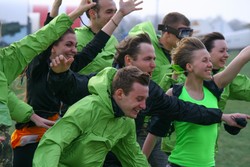 The School of Physics is known not only for the fundamental education it offers, but also for its wonderful traditions. There is an annual ritual of “Initiation into Studentry”. Students always successfully participate in the contest of amateur performances for the first-year students “Alma Mater”, and in the “Miss University” beauty pageant. The well-known show-ballet “Contrast”, the folk music group “Vesnianky”, the Club of the Smart and the Merry, and the Club of the intellectual games “Fenix” are always open for students to join. Much attention is devoted to the genres of solo and choral singing, modern pop and sports dancing. However, it is for many years now that the calling card of the School of Physics has been the celebration of Day of the School, its agenda including a press-conference with faculty members and students, a torchlight procession to the spring in the Botanical Garden, and a gala concert of guests and hosts. Moreover, the School of Physics has something special, namely the Students’ Science Fiction Fan Club “Contact”, and the International Festival of Popularization of Science and Science Fiction “Star Bridge”. Once a year, in September, many guests from 30 countries get together to participate in the culturological conference “Star Bridge”. In the honorable contest held several years ago this festival was recognized the best in Europe by the decision of the Special Commission in Copenhagen.
The School of Physics is known not only for the fundamental education it offers, but also for its wonderful traditions. There is an annual ritual of “Initiation into Studentry”. Students always successfully participate in the contest of amateur performances for the first-year students “Alma Mater”, and in the “Miss University” beauty pageant. The well-known show-ballet “Contrast”, the folk music group “Vesnianky”, the Club of the Smart and the Merry, and the Club of the intellectual games “Fenix” are always open for students to join. Much attention is devoted to the genres of solo and choral singing, modern pop and sports dancing. However, it is for many years now that the calling card of the School of Physics has been the celebration of Day of the School, its agenda including a press-conference with faculty members and students, a torchlight procession to the spring in the Botanical Garden, and a gala concert of guests and hosts. Moreover, the School of Physics has something special, namely the Students’ Science Fiction Fan Club “Contact”, and the International Festival of Popularization of Science and Science Fiction “Star Bridge”. Once a year, in September, many guests from 30 countries get together to participate in the culturological conference “Star Bridge”. In the honorable contest held several years ago this festival was recognized the best in Europe by the decision of the Special Commission in Copenhagen.
|
|


